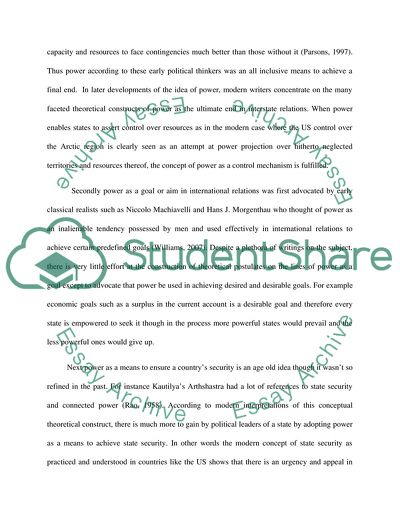What is Power in International Relations Essay Example | Topics and Well Written Essays - 1500 words. https://studentshare.org/politics/1725032-what-is-power-in-international-relations
What Is Power in International Relations Essay Example | Topics and Well Written Essays - 1500 Words. https://studentshare.org/politics/1725032-what-is-power-in-international-relations.


